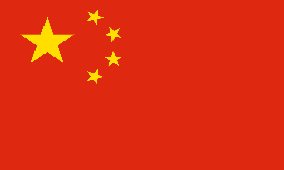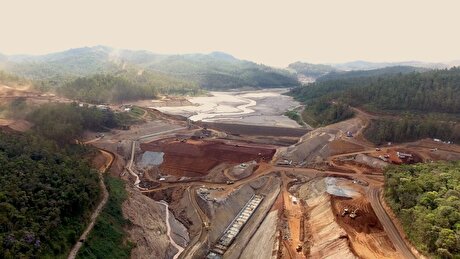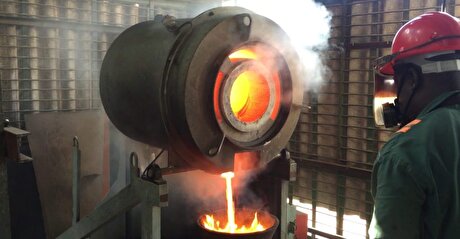
China’s Sinopec forecasts bleak oil demand outlook

The Sinopec Economics and Development Research Institute (EDRI), the firm's research arm, expects the changing workplace, lifestyle, education and consumption patterns to further slow the growth of global oil demand in the future as a direct result of lockdowns brought about by the coronavirus outbreak, which was first reported in Wuhan city in central China's Hubei province in December 2019.
The city, the epicentre of the outbreak in China, lifted its lockdown in early April as the country's number of infections fell.
Domestic economic activity in the country has recovered to around 90pc of normal levels but it is unclear when it will fully resume because of the ongoing spread of the coronavirus globally, the EDRI said.
Combined exports of Chinese jet fuel, diesel and gasoline are likely to decline by 10pc on the year in 2020 from about 1.2mn b/d in 2019, marking a contrast with the average 23 pc/yr growth over the past five years, as global traffic movements and economic activity may start to recover only in the second half of the year at the earliest, limiting oil product import needs from China's key trading partners, the EDRI said.
The ministry of commerce has issued its second batch of product export quotas, but Chinese product exports have started to contract because of deteriorating economics.
Domestic oil demand is starting to recover despite the impact of the outbreak overseas on Chinese manufacturing activity and persistent uncertainty over air travel demand, according to the EDRI.
But the institute is still expecting a 5pc decline on the year in oil products demand in 2020, following a 13pc year-on-year fall in demand during the first quarter. Coal-to-liquid projects, which require a breakeven Brent crude price of $60/bl, are also likely to see demand for end products fall by 5-6pc on the year in 2020.
The decline in oil products demand will see a corresponding reduction in overall refinery throughput by 1.05mn b/d on the year in 2020, based on a 55pc average for product yield and a combined estimated cut in oil products demand and exports of 580,000 b/d, the EDRI forecasts.
But this will have a lesser impact on private-sector refiners such as Hengli and Rongsheng, which have a product yield of below 44pc, requiring them to cut less throughput. These refineries operated at around 110pc capacity last month and cut throughput only marginally in February during the peak of the outbreak in China.
The EDRI also expects China's refining sector to face challenges post-2020, when crude prices are expected to recover and the country may further deregulate its oil sector.
It has also forecast that Brent crude prices will remain low and volatile, in a $10-40/bl range in the short term, but these will rebound in the medium to long term, supported by crude supply costs, although demand will continue to face pressure.
Unless there is a huge technology breakthrough, the EDRI expects incremental global crude supply costs to fluctuate in a $40-60/bl range, making it hard to sustain upstream profitability in many countries. China's upstream breakeven cost was at around $50/bl last year, it said. Upstream losses will balloon up to 50bn yuan ($7.06bn) in a scenario where the oil price remains at $45/bl, based on the 3.8mn b/d of crude that China produces, and double to up to Yn100bn if the price falls to $40/bl.
This is likely to result in a decline in output at older oil fields and a delay to building production capacity at new discoveries.
By Karen Teo


Codelco seeks restart at Chilean copper mine after collapse

Uzbek gold miner said to eye $20 billion value in dual listing

Hudbay snags $600M investment for Arizona copper project

BHP, Vale offer $1.4 billion settlement in UK lawsuit over Brazil dam disaster, FT reports

Peabody–Anglo $3.8B coal deal on the brink after mine fire

Minera Alamos buys Equinox’s Nevada assets for $115M

SSR Mining soars on Q2 earnings beat

Century Aluminum to invest $50M in Mt. Holly smelter restart in South Carolina

A global market based on gold bars shudders on tariff threat

Samarco gets court approval to exit bankruptcy proceedings

US eyes minerals cooperation in province home to Reko Diq

Allegiant Gold soars on 50% financing upsize

Explaining the iron ore grade shift

Metal markets hold steady as Trump-Putin meeting begins

Trump to offer Russia access to minerals for peace in Ukraine

Gemfields sells Fabergé luxury brand for $50 million

Gold price stays flat following July inflation data

Eco Oro seeks annulment of tribunal damage ruling

Zimbabwe labs overwhelmed as gold rally spurs exploration, miner says

Samarco gets court approval to exit bankruptcy proceedings

US eyes minerals cooperation in province home to Reko Diq

Allegiant Gold soars on 50% financing upsize

Explaining the iron ore grade shift

Metal markets hold steady as Trump-Putin meeting begins

Trump to offer Russia access to minerals for peace in Ukraine

Gemfields sells Fabergé luxury brand for $50 million

Gold price stays flat following July inflation data

Eco Oro seeks annulment of tribunal damage ruling














